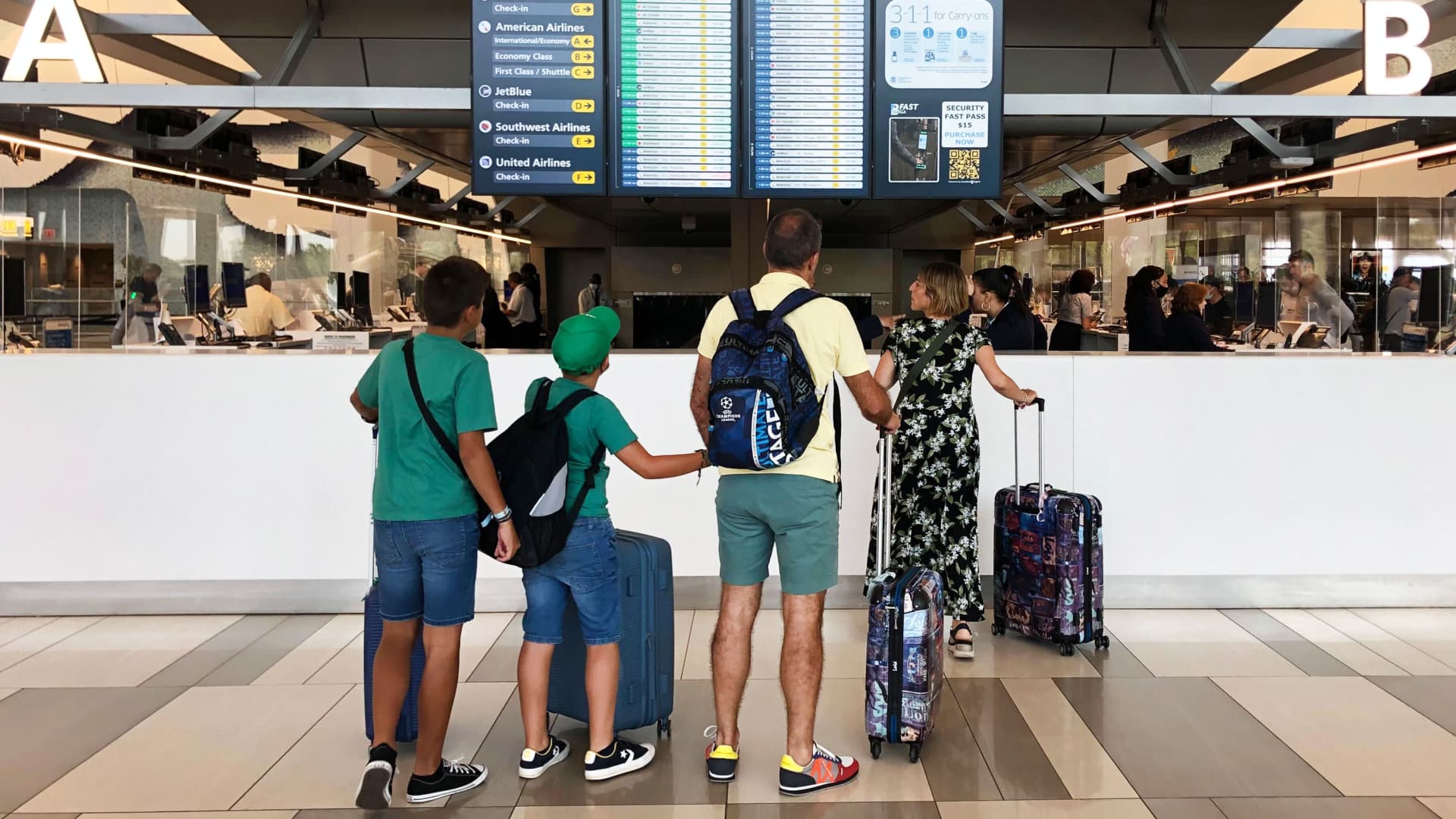Travelers at LaGuardia Airport in New York on June 30, 2022.
Leslie Josephs | CNBC
The Transportation Department on Wednesday proposed stricter rules on when airlines would have to compensate passengers for canceled or delayed flights, a move that follows a surge in traveler complaints after Covid-19 roiled air travel.
Air travelers are currently entitled to a refund if their flights are canceled or “significantly” changed or delayed and they choose not to travel. But the agency had not defined what constitutes a significant change.
The U.S. Department of Transportation is now proposing to define that as a departure or arrival time that’s off by at least three hours for domestic flights, or at least six hours for international flights. Travelers would also be entitled to a refund if the routing changes or if a connection is added, as well as if a change in aircraft causes a “significant downgrade” in amenities or other features.
Transportation Secretary Pete Buttigieg has publicly admonished airlines in recent weeks over an uptick in flight cancellations and delays, while airline executives and the Federal Aviation Administration have pointed fingers over who’s to blame.
Some Democratic lawmakers have called for better consumer protections for air travelers.
Complaints about airline refunds accounted for 87% of the 102,560 complaints the DOT logged in 2020 and about 60% of the 49,958 complaints in 2021.
The DOT also proposed requiring airlines to give flight credits or vouchers without expiration dates if passengers can’t fly because of Covid-19, including lockdowns, travel restrictions or personal health reasons.
“When Americans buy an airline ticket, they should get to their destination safely, reliably, and affordably,” Buttigieg said in a news release.
Airlines for America, which represents large airlines like American, United, Delta, Southwest, JetBlue and others, declined to comment.
The pandemic and plunge in air travel demand prompted some airlines to make their tickets more flexible. For example, American, United and Delta, got rid of ticket-change fees for standard economy tickets in 2020.
And last week, Southwest, which didn’t charge ticket-change fees before the pandemic either, said the vouchers it issues will never expire.
The DOT’s proposed rules are open to public comment for 90 days.
For all the latest Travel News Click Here
For the latest news and updates, follow us on Google News.

